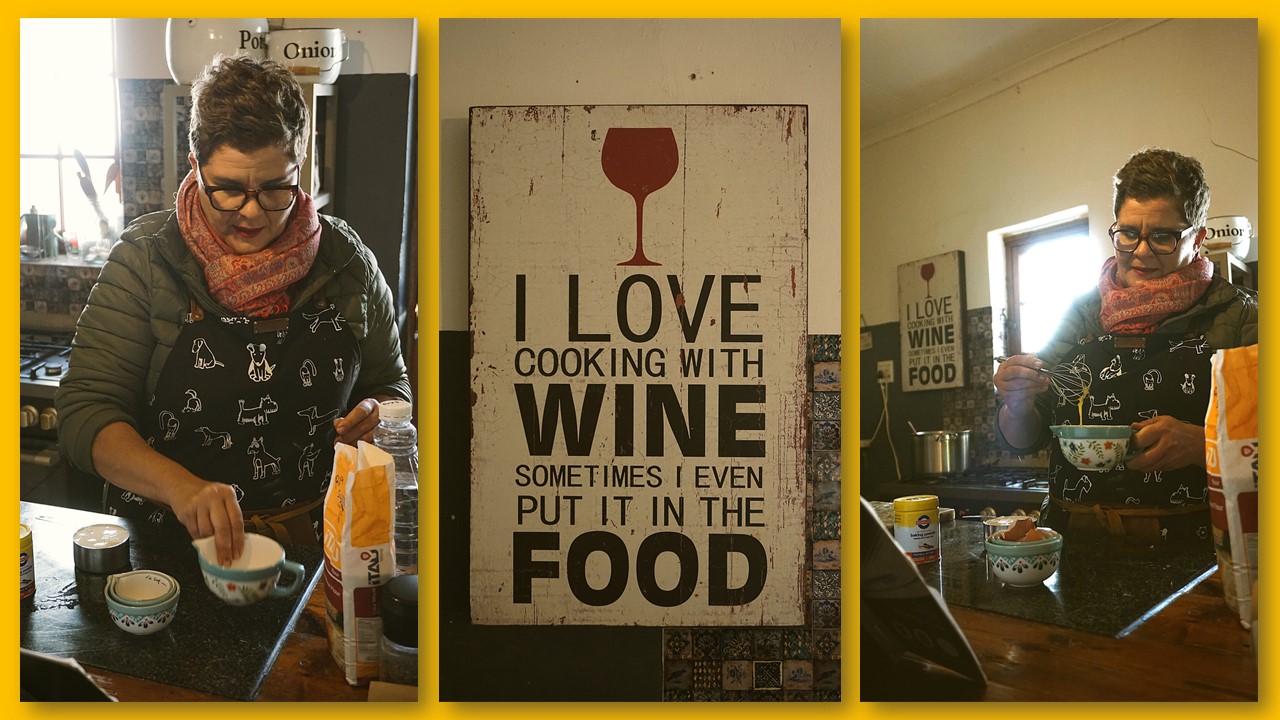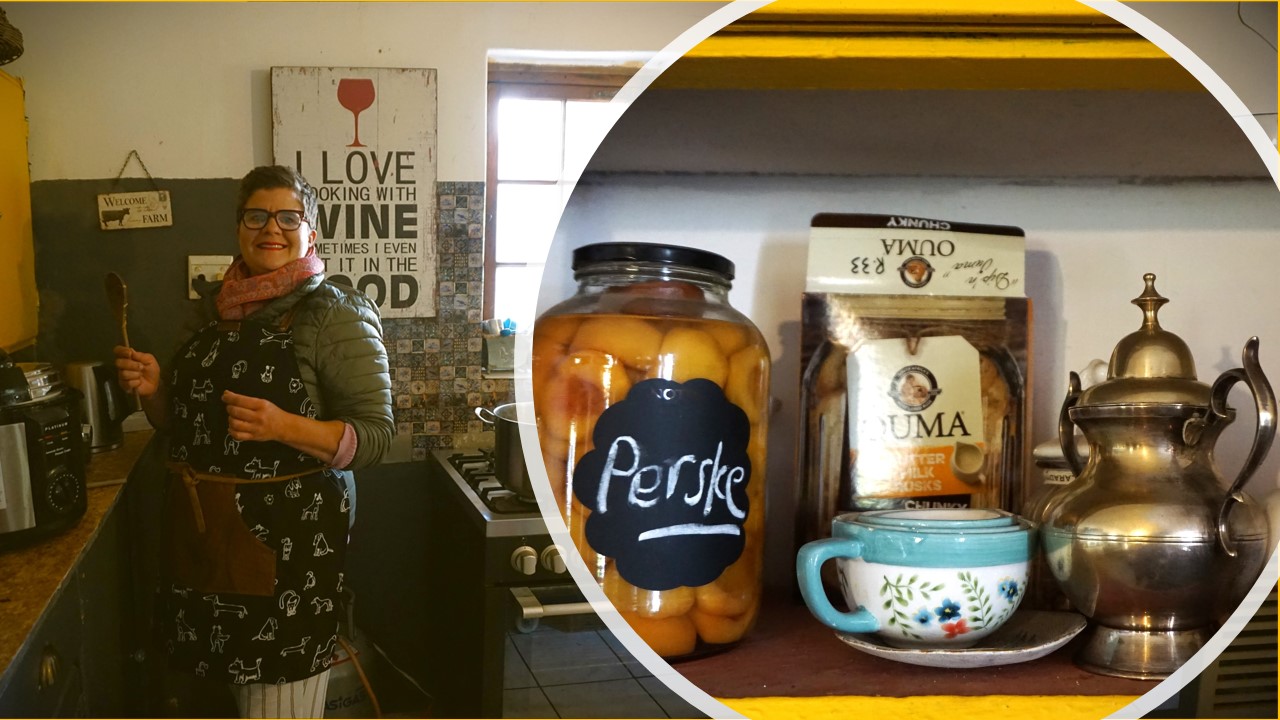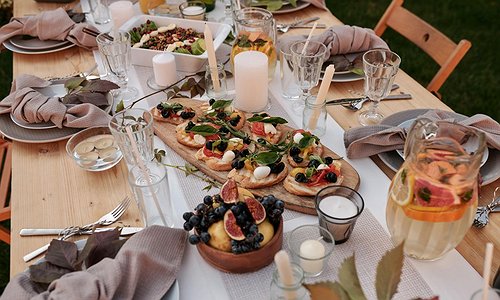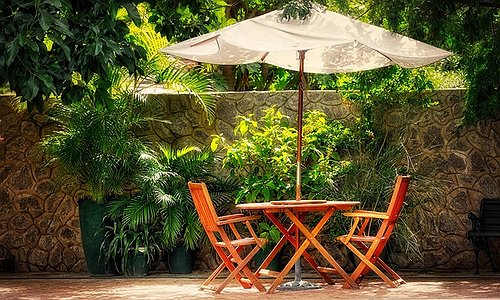Carin Pienaar shares the simple truth of traditional cooking

For Carin Pienaar, the kitchen is more than a place to prepare meals. Her food (pies filled with lamb or chicken, slow-baked pumpkin with sugar and cinnamon, vetkoek fried to a gentle crisp) is unpretentious. It resists the world’s obsession with novelty and excess. It’s meant to restore.

“I think people are tired,” she says. “Tired of fast food. Tired of fast life. They want the food their grandmothers made in an old farm kitchen.”
In a place where cell reception flickers and neighbours still share food over fences, there is less room for spectacle. Life unfolds more slowly. It’s closer to the ground.
That simplicity is reflected in the cooking. Boerekos, the traditional Afrikaans cuisine of the interior, returns again and again to a core of simple ingredients: butter, potatoes, maize, pumpkin, apricots, sugar. A roast leg of lamb. A slice of milk tart. A thick mustard sauce stirred by hand.

But if the ingredients are simple, the meaning is not. To cook this way from scratch, often with inherited recipes, often for others, is to insist that food is not just fuel. It is history, identity and service. To make a meal is to keep something alive: a way of being that refuses to vanish.
“When there’s a funeral,” she says, “no one hires a caterer. The community comes together. Everyone makes food. Everyone bakes their heart out.”
Pienaar works from a recipe book handwritten by her grandmother – an almanac of vinegar, onions, salt, pepper, cream and butter. “They used what was on the farm,” she says, “and made it taste incredible.”
In an age of delivery apps and imported flavour trends, the Karoo kitchen is a radical space. It is an essential way of connecting to community, the land, and an older means of self-sufficiency.
The conditions demand it. The pace of life, the harsh seasons, the practical limits of distance, all nudge people back into the kitchen. And once there, something changes. People who never cared to cook begin asking neighbours for recipes. Pies are traded. Bread is baked. Food is slow-cooked in Agas. Dishes passed down through generations are made again, not because they are trendy, but because they are good.

“Even people who never liked cooking before start doing it here,” Carin laughs. “You hear about what someone else baked, and suddenly you want to try it yourself. Eventually, everyone brings a dish. And we eat together.”
What she offers is the idea that a meal can be simple and still profound. That tradition, when preserved with reverence, can be both nourishment and protest against forgetting, haste, and hunger that is never quite satisfied.
Her favourite meal isn’t one she makes alone. “A long table, warm boerekos, good wine, and friends - that’s my favourite dish.”




